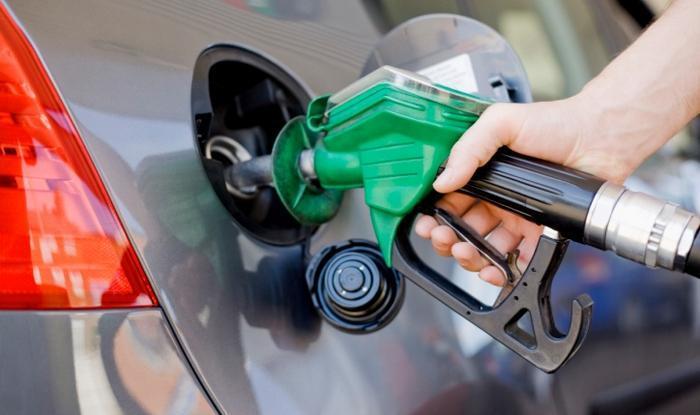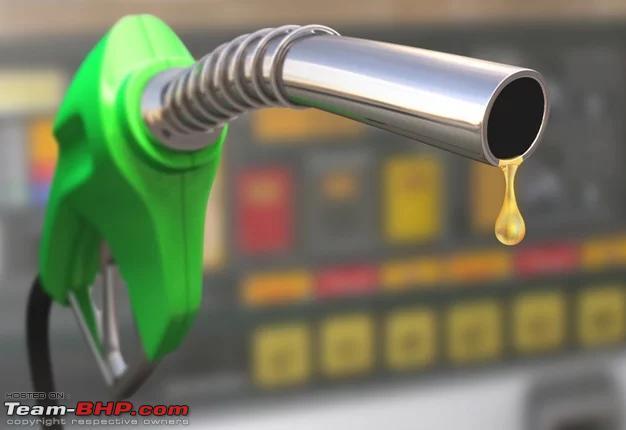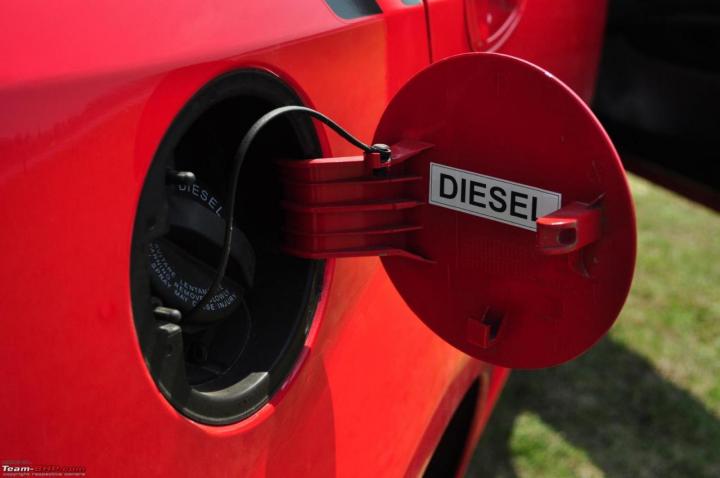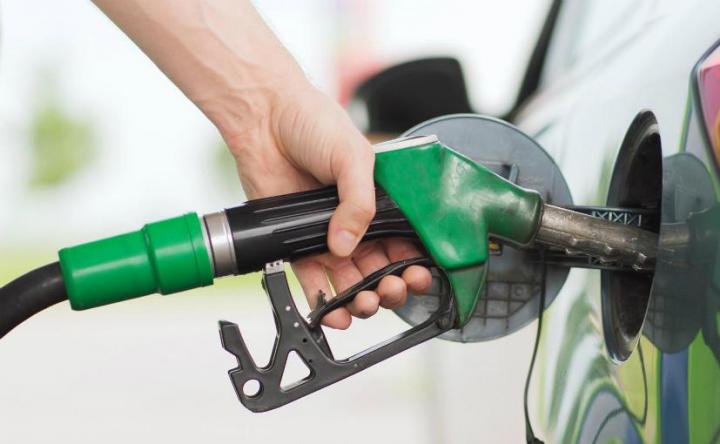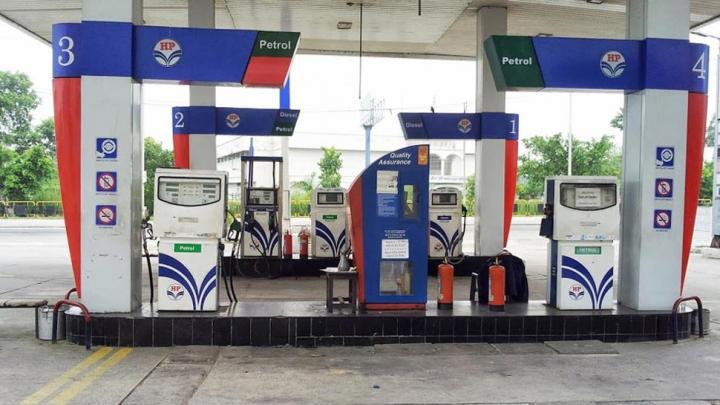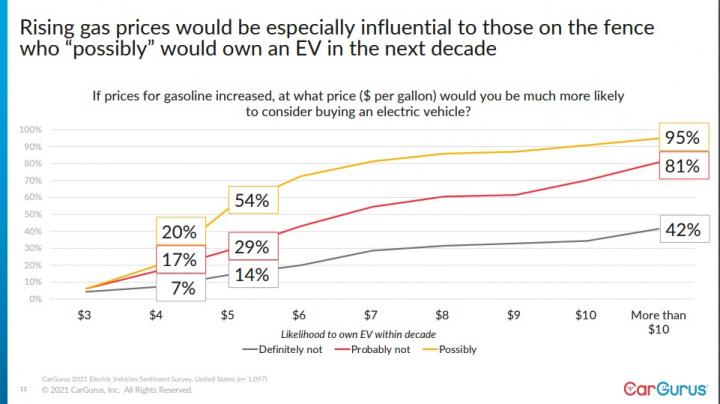News
Petrol & diesel prices slashed by Rs 2 in India
The price cut comes ahead of the Lok Sabha elections.
The government has slashed the prices of petrol and diesel by Rs 2 across the country. The new prices will come into effect on March 15 from 6 am onwards.
In Delhi, a litre of petrol now costs Rs 94.72, while diesel costs Rs 87.62 per litre. In Mumbai, petrol costs Rs 104.21 per litre and the price of diesel is Rs 92.15 per litre.
In a statement posted on the X platform, the Ministry of Petroleum and Natural Gas, said, "Reduction in petrol and diesel prices will boost consumer spending and reduce operating costs for over 58 lakh heavy goods vehicles running on diesel, 6 crore cars and 27 crore two-wheelers."
The price cut comes ahead of the Lok Sabha elections. It is the first price revision since May 2022. Earlier this month, the government announced a reduction in prices of LPG cylinders (14.2 kg) by Rs 100.
- Tags:
- Indian
- Fuel Prices
- Price cut
News
Fuel prices compared: Here's how far $40 will take you in each country
Contrary to our beliefs, Indian fuel prices fit somewhere middle of the chart when looked at globally.
BHPian ninjatalli recently shared this with other enthusiasts.
That's an interesting question, right? Especially depending on where you are, there's a significant difference in how much the fuel costs you.
The Washington Post definitely thinks so. The linked article nicely details out how half a tank of gasoline (/petrol) in one of the most common cars across the world (a Toyota Camry - although I would have the Corolla would be more appropriate) will get you around. With the current prices in the US, half a tank of gas for the Camry is estimated to cost around $40 (~3100 INR) so using data from Global Petrol Prices and some social-economic data, they came up with this nice article that touches upon the concerns and local issues of some of the countries with the highest population and how the current fuel prices affect their daily life.
Here's a snapshot of some of their analysis - do have a look at the more detailed article linked above (with local interviews across multiple countries & additional data).
How far $40 of gas will get you in the countries with the largest economies.

Contrary to our beliefs, Indian fuel prices fit somewhere middle of the chart when looked at globally. As per Global Petrol Prices which track this across nations on a daily basis, India ranks 64 out of 168 countries with oil-rich countries like Venezuela & Libya at the top having the cheapest price (no surprises) and Norway, Finland & Hong Kong at the end with prices hovering at nearly Rs 170 per litre! Neighbouring/Peer countries like Bangladesh (Rs 75), Bhutan (Rs 92), Pakistan (Rs 89), Nepal (Rs 112), China (Rs 114) & Sri Lanka (Rs 120) are all spread across thanks to their own economic conditions and the local taxes their governments impose on fuel.
Of course, when one looks at purchasing capacity, the story is always a different one to tell. But hopefully, the above view gives you a worldwide perspective just from a fuel cost aspect.
Key links for further reading:
The interviews across Columbia, UAE, Germany, India and others are quite interesting to hear similar complaints from local traders, families and business people across nations; in spite of the different taxation & pricing situations in each of these countries. A snapshot
Columbia
- Status: Reduced prices due to the government heavily subsidizing the price of petrol
- Reaction: Locals are acknowledging the benefits (vis-a-vis other countries) they have but are worried about the subsidy being removed.
UAE
- Status: Subsidies that were quite common have been removed causing a doubling in prices
- Reaction: Locals (& ex-pats) are complaining about the sudden increase in fuel. Carpooling and alternate transport are being considered.
Germany
- Status: High increases seen in prices; government being urged to subsidize prices. Instead, they are subsidizing public transport
- Reaction: Locals are complaining about the sudden increase in fuel and its impact on their jobs/work. Public transport is being leveraged where possible.
France
- Status: High increases seen in prices; government being urged to subsidize prices. The re-election of the current president is expected to show some action on the taxes but only time will tell.
- Reaction: Locals are complaining about the sudden increase in fuel and its impact on their jobs/work. Carpooling and alternate transport options are being considered.
India
- We know the status. Local interviews reflect the same.
Here's what BHPian K7@TN14 had to say on the matter:
Thank you for sharing it. It is great to see the different analytical perspectives on current fuel prices. Looking at the Global Petrol Prices, it's appearing the fuel prices are higher in India in comparison to other nationals. I getting this perception while considering our average annual income ($1822 )which is much lower than the other nationals. Am I missing something here?
Here's what BHPian supermax had to say on the matter:
European countries are hit hard by the ongoing Ukraine war. In Sweden, petrol prices have been as high as 25 SEK per litre (~175 INR), but when the crude prices were at historic lows, the price at the pumps too was really low. Unlike in India where the pump price goes up when the crude price goes up but is kept high even when the crude price drops, so it's like comparing apples to brinjals.
Here's what BHPian narayans80 had to say on the matter:
For a full 5.5 years (2012-2017) I have never seen petrol or diesel below 1 euro. The lowest I saw towards late 2017 when it was 1.20 EUR for petrol. Diesel was 1.30. I've seen it go as high as 1.60-1.70 EUR.
So there is no comparison against Indian prices.
Check out BHPian comments for more insights and information.
- Tags:
- Indian
- Fuel Prices
News
Is paying extra for high-octane fuel worth it? Users share their views
The only benefit I see is reduced knocking when driving at a higher gear than usual.
BHPian Ritkon recently shared this with other enthusiasts.
Saw this gem of a thread while browsing through Team-BHP.
The thread is quite old and was last updated in 2011, when fuel prices were, let's just say affordable.
However, now that we are in an era when fuel prices are hotter than a combustion chamber, do you still pamper your beloved 2 or 4 wheeled buddy with the premium liquid? If so, is it just because of mental satisfaction or do you actually see some benefit out of it?
I use the XP95 on both my car (Grand i10 BS4) and bike (Yamaha FZS V3 BS6). The only benefit I see is reduced knocking when driving at a higher gear than usual. Added to that is the fact that it is supposed to keep the engine cleaner. No significant benefits were noticed in fuel efficiency (actually it's a bit worse), NVH or even emission tests (yes I tried). I don't think it is worth the premium, but have become a slave to the habit and just cannot go back to the usual petrol.
- What do other fellow BHPians think?
- Is it worth the price difference?
- Have you noticed any noticeable benefits?
- Do you care about it at all?
Here's what BHPian Jeroen had to say on the matter:
Well, we really have a different thread for this. But from an engineering point of view what is relevant is the octane number your engine was designed for.
That is mentioned in the owner manual. The Internet might tell you differently, but they won’t refund you the difference in price!
The octane number is directly related to the compression ratio of your engine. That is fixed. If it was designed for 95, putting 98 in is not going to be much if anything. The other way around is a problem.
Can you actually hear your engine knocking? Many modern engines have knock sensors that will advance/retard the ignition timing. Some engines can benefit a bit from a higher octane number, but really only if you rev high and hard.
I have never seen that in India. I don’t think I have ever seen any engine in any car in India go over 2000rpm. And the. Of course, many cars are diesel too.
I use premium high octane on all my old and classic cars here in Europe. The only reason is that premium brands such as Shell, BP and Esso still sell 98E5. And the actual ethanol content in these fuels is zero per cent. Old cars and E10 don’t mix well, irrespective of octane number. All 95 octane these days is E10.
Here's what BHPian vikred had to say on the matter:
I drive a 2015 Toyota RAV4 (2.5L gasoline engine) in the US. The manufacturer recommends "Unleaded gasoline (Octane rating 87 or higher)" which is the regular gasoline here. I always used the 87 octane fuel ever since I started owning this vehicle, and have never gone above that.
Anecdotally, I believe whatever fuel efficiency or performance you gain (If you gain) over the recommended grade by using a more premium tier fuel is negated by the higher price of the fuel. Example: gaining 5% efficiency by paying 10% more.
Here's what BHPian Shreyas_H had to say on the matter:
I drive a Polo 1L TSI. I have regularly been putting in 95 octane petrol. while the VW sales guy said normal should be fine, the fuel flap says use 95 octane petrol!
I do see a slight difference in engine smoothness/noise levels. Not really sure if it impacts mileage but people say it does improve it.
Given the already super high petrol prices, a 4.5 to 5 rupee premium for XP95 is fine for me!
Here's what BHPian Turbanator had to say on the matter:
I will differ a bit, most EU engines work based on the tune. Say a B58 BMW engine in India will have a different tune for low-quality fuel. So until we change that tune, not much can be achieved even with a higher octane fuel and similarly, no harm should be caused to such engines even by using regular fuel.
As I mentioned above, cars or motorcycles which are manufactured and delivered for higher octane will benefit the most. On others, it will be mostly a placebo.
Check out BHPian comments for more insights and information.
- Tags:
- Indian
- high-octane
- Petrol
- fuel
- Fuel Prices
News
USA: Diesel hits Rs 113 / litre. More expensive than petrol
The overall price has increased by a massive US$ 2.41 since last year.
According to media reports, the national average price for a gallon of diesel in the USA is at an all-time high of US$ 5.51. Reports suggest that the price of diesel has been increasing steadily every day. The overall price has increased by a massive US$ 2.41 since last year.
Diesel prices have also overtaken that of petrol (gasoline), which now stand at US$ 4.28 / gallon (Rs 87.5 / litre). However, prices of petrol have also been increasing steadily and are now said to be just 6 cents away from breaking the record set on March 11.
While there are many reasons for the rising fuel prices, one of the most important is the Russian war on Ukraine. Amidst the invasion, the gas market is said to be going into a frenzy, with countries ensuring they have enough energy resources. Also, with fewer exports going out of Russia - the world's largest exporter of crude oil and natural gas, countries in Europe are looking elsewhere to secure supplies.
Another reason for the surging prices in the USA is the weather. Reports suggest that the weather is hotter than normal in many parts of the country, forcing the use of power generators, which run on gas to produce electricity.
Source: Jalopnik
- Tags:
- Indian
- Fuel Prices
- International
News
Rising fuel prices in India: Effects on car ownership & new purchases
Has the continued rise of fuel prices made you reassess your new car buying decision and/or impacted your overall car ownership experience?
BHPian shortbread recently shared this with other enthusiasts.
Brent has now crossed $120/barrel and there isn't a respite in sight. Of course, there will continue to be fuel price fluctuations, but overall it is only headed in one direction and that is UP.
This would have had a big impact on most car buyers. In that case, has the continued rise of fuel prices made you reassess buying/owning cars? Please state your position and why so.
Kindly note this thread is neither for arguing the pros and cons of ICE or EV cars nor to gauge political opinions. The intention is to gauge how Team bhp members' car ownership/purchase decisions have been influenced (or not) by rising fuel prices. I feel this will be an excellent sample representation of how the Indian automotive market will change going forward. Thank you.
Appendix
- ICE - Internal combustion engine, cars powered purely by petroleum products
- EV - Electric vehicle/cars, cars running on battery power alone
- PHEV - Plug-in hybrid car, i.e. vehicles using electric motors and a combustion engine, operating either one or both when required. Albeit mass-market hybrids are at least 18-24 months away in our market.
Here's what GTO had to say about the matter:
For as long as possible, my garage will always have a turbo-petrol as well as a turbo-diesel. I deeply love both engine types. Equally, I've also become a fan of fast EVs (the likes of Tesla / Taycan) and will surely add one to our garage in the future.
I am perhaps a rare example on the forum who hits the highway frequently but doesn't pay for fuel as all the test-drive cars come to us with a full tank of fuel. Regardless, fuel prices or low FE has never bothered me. I have cars in my blood & 100+ bucks / liter will never make me stop enjoying them. Cars are such a good passion to have, unlike say gambling or other addictions (e.g. alcohol).
Here's what BHPian ValarMorghulis had to say about the matter:
I have a petrol Venue SX+ DCT. My running is pretty low but I plan to increase it this year including trips exploring complete south India. Have started taking out the car for short trips more often.
Has the continued rise of fuel prices made me reassess owning the car?
Nope. A Rs.10 increase per litre will also make my pocket lighter by only Rs.450 (for a tankful) which is less than the cost of a medium-sized pizza.
Haven't changed my driving style which is pretty sedate by itself.
As of now, there is no EV in my sights or plan.
Here's what BHPian lamborghini had to say about the matter:
Not an immediate need to change but a future purchase would be an EV / Hybrid whenever it may be, just because it doesn't make sense to spend 20L for a new car to save 2K/month in extra fuel costs.
On the same note, my personal drive would mostly continue being petrol / diesel in the foreseeable future, justified by an ultra-low monthly run of 300-400kms & pre-owned purchase preference; though for the family / work cars I would look at EV / Hybrids if they meet our requirements of safety, space, usability, etc.
Here's what BHPian Eddy had to say about the matter:
I will continue to drive a regular ICE car for the next 2-3 years. That's when my current rides will become obsolete (one petrol, one diesel). Let's see what the situation is then, but I am not the one to experiment and become an early adopter so not sure if I will go the EV way.
Hence if I were to buy one today, it will be a petrol car only.
Check out BHPian comments for more insights and information.
- Tags:
- Indian
- Fuel Prices
- Car ownership
News
Rs 9000 for a full tank of petrol in my Mercedes-Benz S-Class
Took out my Mercedes S350 for a last minute roadtrip to Goa, via Shimoga.
BHPian androdev recently shared this with other enthusiasts.
The stuff I want to forget (mind you, it is a 90-litre fuel tank):
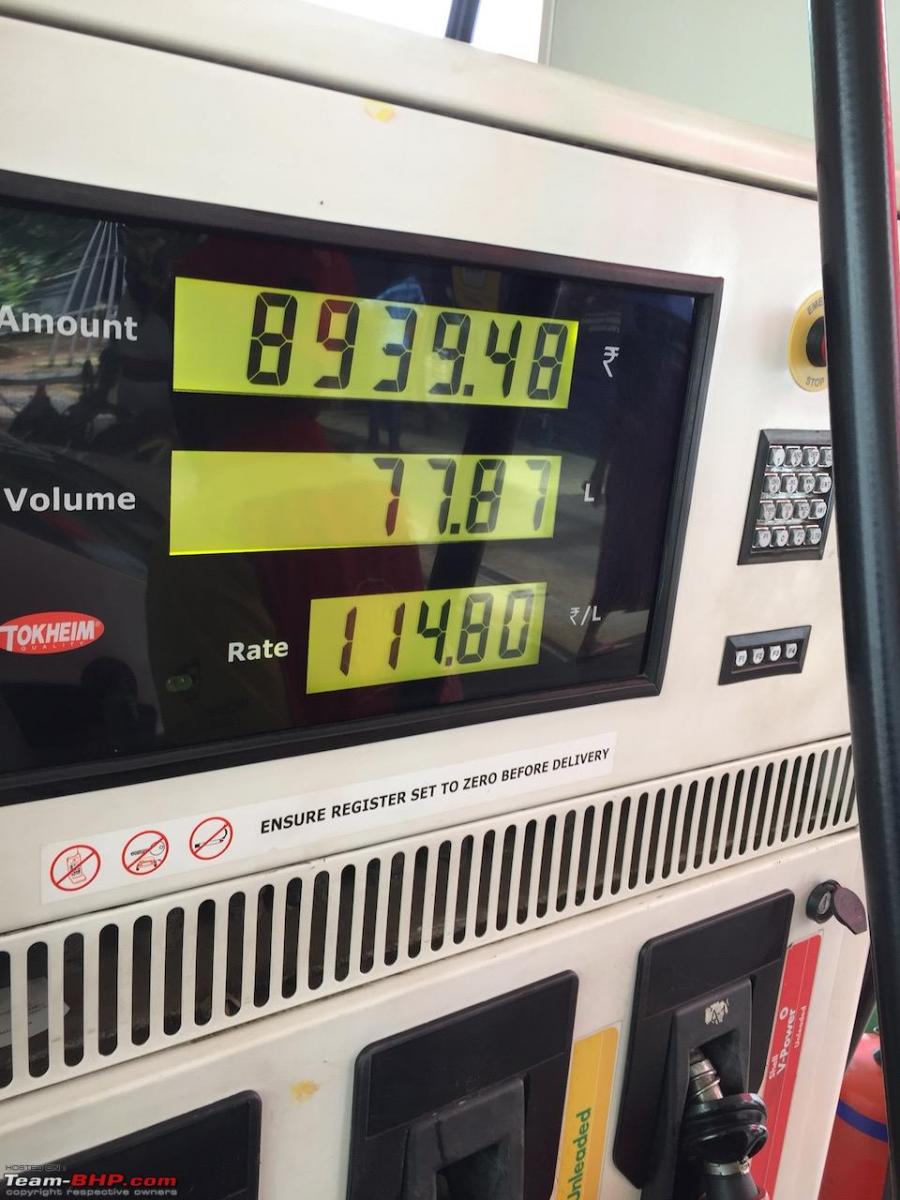
Things I want to remember:

Took a last-minute decision to drive down to Goa, with an overnight stay at Shimoga.
Shimoga - Sagar - Badala - Kumta (not via Honnavar) route was the highlight - a lot of winding roads with minimal traffic, some fast sections and some narrow forest roads.
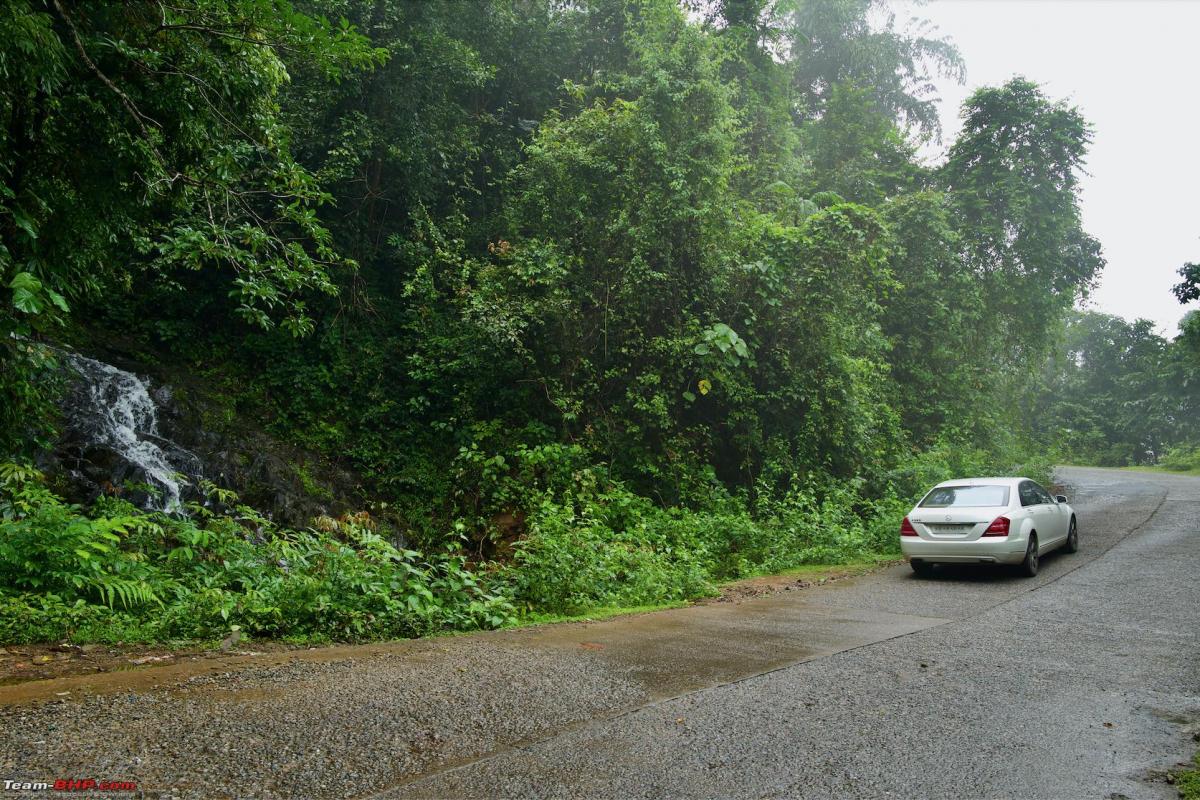
Long stay + proper checkout.

A rural love story, made in Germany:

Check out BHPian comments for more insights and information.
- Tags:
- Indian
- S-Class
- Fuel Prices
News
Rising fuel prices forced me to book a Tata Nexon EV
Apart from the Tata Nexon EV, there are not many other affordable electric cars on sale in India.
BHPian mh09ad5578 recently shared this with other enthusiasts.
I drive a diesel Hyundai Creta 1.4L, it gives excellent average most times between 18-20 km/l and even more. But my monthly 4000 km running is making my eyes water, going this week to a Tata showroom in Bangalore to book a Nexon EV. I had no plans or budget to buy this. I had planned the next car for 2025, but can't take the rising fuel prices anymore. My fuel bills are up 30%, while earnings have decreased post-covid. I don't see the situation improving. I dream and fantasize about the 'bure din' now.
PS: Be prepared for the next 30-50% rise in commodities prices that are coming with high diesel costs. I think the government is doing a criminal mistake by pushing up diesel prices. This is going to spike inflation and everything else and cause the economy to go into a tailspin.
Here's what BHPian Cyborg had to say on the matter:
I feel the increase in petrol and diesel prices is being done with a view to promote electric vehicles. There are other factors too but coupled with the rise in fuel prices they are also giving heavy subsidies to electric vehicles. There must be many like you who want to go the electric way to save running costs, which suits the plan and is filling up government coffers with the high rate of taxes. I doubt electric vehicle sales would increase as they are if fuel prices weren’t being jacked up like they are.
I am sure you must have thought about it, still putting it across. Have you factored the cost of buying a Nexon EV plus running costs (however low they may be) to how much fuel you could buy with that same amount if you invest it in safe instruments on interest (principal plus interest amount)?
Here's what BHPian white_wolf had to say on the matter:
If that is the case, then where are the vehicle to buy? Maruti who has a 50% market share has a timeline of 2025 to bring EVs. Apart from Nexon, there is no other EV in a relatively affordable range. No option in the affordable range at all. Even among two-wheelers, we have only a handful of options from major OEMs. The market does not see this shift happening in a revolutionary way in the next 3-4 years no matter what the marketing campaigns of some startups would want you to believe.
Here's what BHPian riturajsharma19 had to say on the matter:
Are EVs the answer though? As someone residing in a Tier-3 city, we have to deal with frequent power cuts or 'load-shedding' as it is commonly referred to, throughout the course of the day. What if the car needs an overnight charge for the trip the next day and there is an extended power cut for the entirety of the night?
Check out BHPian comments for more insights and information.
- Tags:
- Indian
- Electric car
- Fuel Prices
News
Petrol sales top pre-pandemic level for the first time
Diesel consumption rose to 89% of the pre-pandemic level.
Fuel prices have skyrocketed in recent times. But despite petrol retailing at over Rs. 100 per litre, sales have topped the pre-pandemic level for the first time in 17 months.
When it comes to price, diesel isn't too far behind either. Yet, diesel sales stood just 11% short of the pandemic year in July.
According to market data, state-owned fuel retailers sold 3.5% more petrol in July 2021 compared to the same period in 2019. Diesel consumption rose to 89% of the pre-pandemic level.
Sales in July rose by nearly 9% compared to the previous month, while diesel sales were down by about 1%. Compared to last year, petrol and diesel sales were 17% and 12% higher, respectively.
Source: TOI
- Tags:
- Indian
- Fuel Prices
News
Now, diesel to cross 100 bucks a litre
The highest prices of petrol and diesel in the country are Rs. 106.94 and Rs. 99.80 per litre, respectively, in the Sri Ganganagar district of Rajasthan.
Petrol has been selling at a price of more than Rs. 100 per litre in six states and union territories in India including Rajasthan, Madhya Pradesh, Maharashtra, Andhra Pradesh, Telangana and Ladakh. Now, it is the turn of diesel to cross the Rs. 100 per litre mark.
In Rajasthan, the price of a litre of diesel has touched Rs. 99.80 after oil companies raised fuel prices on Friday. While the price of petrol was hiked by 29 paise per litre, that of diesel was increased by 28 paise. Since May 4, 2021, oil companies have hiked fuel prices 22 times. The price of petrol has increased by Rs. 5.45 per litre and diesel by Rs 6.02 per litre. The highest prices of petrol and diesel in the country are Rs. 106.94 and Rs. 99.80 per litre, respectively, in the Sri Ganganagar district of Rajasthan.
Over the last seven years, the Government of India has hiked taxes on petrol by two times and on diesel by almost eight times. Among the states, Rajasthan levies the maximum VAT on fuel with Madhya Pradesh, Maharashtra, Andhra Pradesh and Telangana following.
On May 29, Mumbai became the first metro city in India to sell petrol at a price of more than Rs 100 per litre.
Source: Times of India
- Tags:
- Indian
- Diesel
- Petrol
- Fuel Prices
News
More people would own EVs if fuel prices cross $5 per gallon
A new survey shows that 57% of people will consider shifting to EVs if fuel prices cross $5 per gallon.
With fuel prices increasing ever so steadily, it makes sense to shift to electric vehicles. However, with EVs still facing their own set of problems like charging infrastructure and range anxiety, many customers still seem to be on the fence.
A recent survey in the USA confirmed that if the fuel prices continue to increase at the current rate it could lead to faster adoption of EVs.
However, the survey more specifically asked its participants as to what the price point would be, post which they would become more willing to consider purchasing EVs.
According to the results, 26% of the participants agreed to $4 per gallon of fuel being the cut off price. This number though doubled to 57% when fuel prices were increased to $5 per gallon.
The survey also stated that the rising fuel prices would be especially influential on people who are already considering the purchase of an electric vehicle. A separate graph showed that 54% of participants who are 'on-the-fence' would own an EV in the next decade if the fuel prices were to reach $5 per gallon.
Prices of both petrol and diesel in the USA are currently a little over $3 per gallon.
Source: CarGurus
Pages




